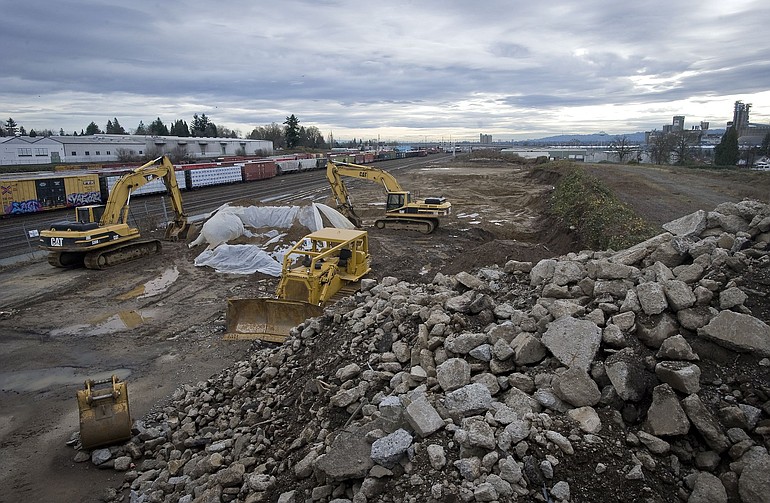Taxpayers are underwriting the cleanup of a contaminated piece of land in west Vancouver to make way for a railroad improvement project.
The total cost, including earthwork and remediation, could come to $1 million.
The 2½-acre property along Fourth Plain Boulevard had been the site of a metal scrap yard originally established in 1946.
Metal scrapping ended after a raid by environmental regulators in late 2006.
The raid at 1701 W. Fourth Plain Blvd. targeted a hulk-hauling operation owned by Dick Henderson. Henderson, who was leasing from property owner Cliff Koppe, removed items such as leaking barrels that were deemed an imminent hazard to the environment. Later, Koppe hired an environmental remediation company to clean out oil-soaked trenches and dry wells.
But residual contamination — metals, petroleum and polychlorinated biphenyls, or PCBs — remained embedded in the soil.



